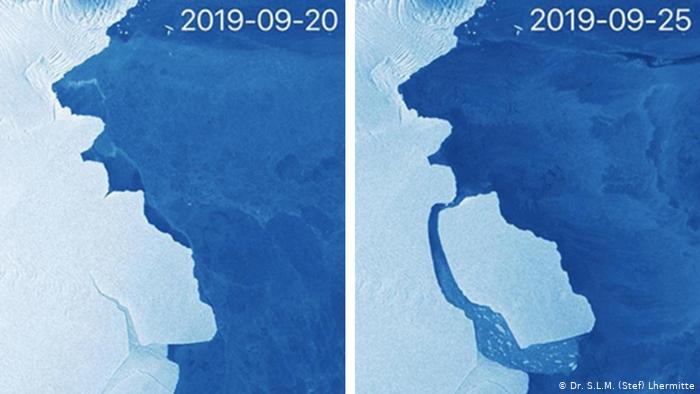
On February 6, 2020, weather stations recorded the hottest temperature on record for Antarctica. Thermometers reached 18.3 C (64.9 F). During the warming event, around 1.5 square km of snowpack became saturated with melt water.

Too much time sitting still is linked to an increased risk of depressive symptoms in adolescents, finds a new study. The study found that an additional 60 minutes of light activity daily was associated with a 10% reduction in depressive symptoms.

In a new study, people exposed to jargon when reading about subjects like self-driving cars and surgical robots later said they were less interested in science than others who read about the same topics, but without the use of specialized terms.

A new study suggests that significant early childhood exposure to traffic-related air pollution is associated with structural changes in the brain at the age of 12. Specifically reductions in gray matter volume and cortical thickness.

A huge chunk of ice more than three times the size of Paris has broken off one of Earth's most critical ice shelves, Pine Island Glacier in Antarctica. This has leading scientists concerned that the glacier could soon completely break down.

Every person in the world is wasting about 500 calories of food a day, according to a new study. Without waste, we could feed five people instead of four. Reducing food waste is a key challenge in fighting climate change.

The World Health Organization (WHO) on Thursday declared the coronavirus a public health emergency of international concern. The UN's health arm said the move was to protect countries with "weaker health systems."

Scientists are concerned, because HFC-23 is a very potent greenhouse gas, with one tonne of its emissions being equivalent to the release of more than 12,000 tonnes of carbon dioxide.

Malaysia will no longer allow other countries to dump their plastic waste on its land. The country has successfully returned 150 containers of plastic waste to 13 mostly wealthy nations since the end of last year.

The number of people who are talking about fossil fuels as a real concern has increased dramatically over the last 12 to 24 months. Awareness of these issue may be growing, but global emissions are continuing to rise.
NASA released a radar animation that shows smoke from the fires 6,800 miles away in Chile. The skies over Chile have turned grey and hazy. Argentina has also seen sunsets tinged with red from the smoke.

The Australian Bureau of Meteorology (BOM) has released its annual climate statement for 2019, and found that last year was both the hottest and driest on record for the continent.

Apocalyptic scenes are playing out across Australia as bushfires have burned millions of acres and ravaged more than 1,000 homes in New South Wales alone. The new normal is not only more lethal, it's also harder to predict.

They’re cloyingly sweet, nutritionally empty—and, increasingly, subject to taxation. More than 35 countries and seven cities in the US — now impose a tax on soda and other sugar-sweetened beverages, and several more places are considering it.

Five studies found that a 10µg/m3 increase in the average level of fine particulate matter (PM2.5) air pollution people were exposed to over long periods was associated with an approximately 10 percent increase in their odds of depression.